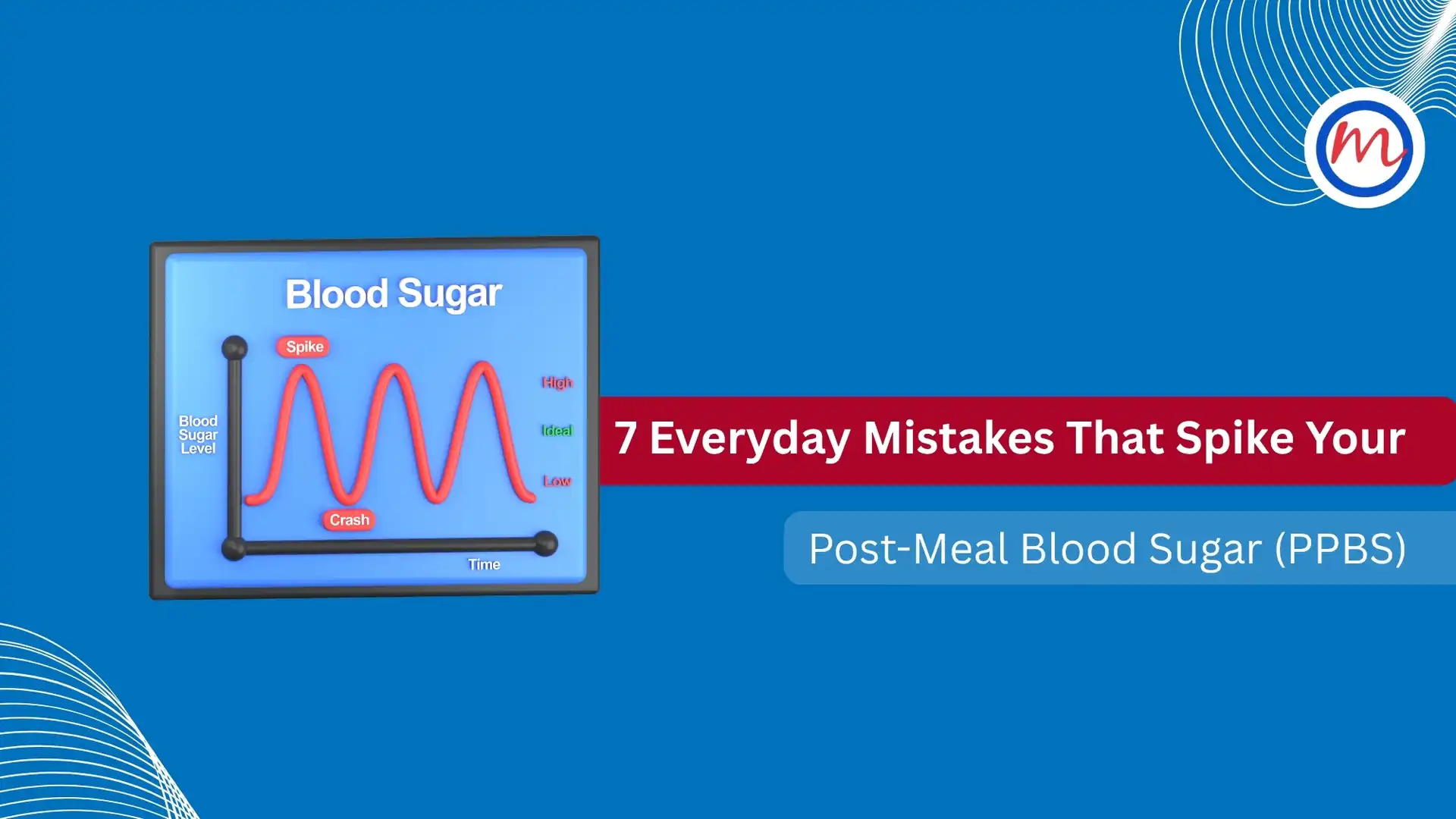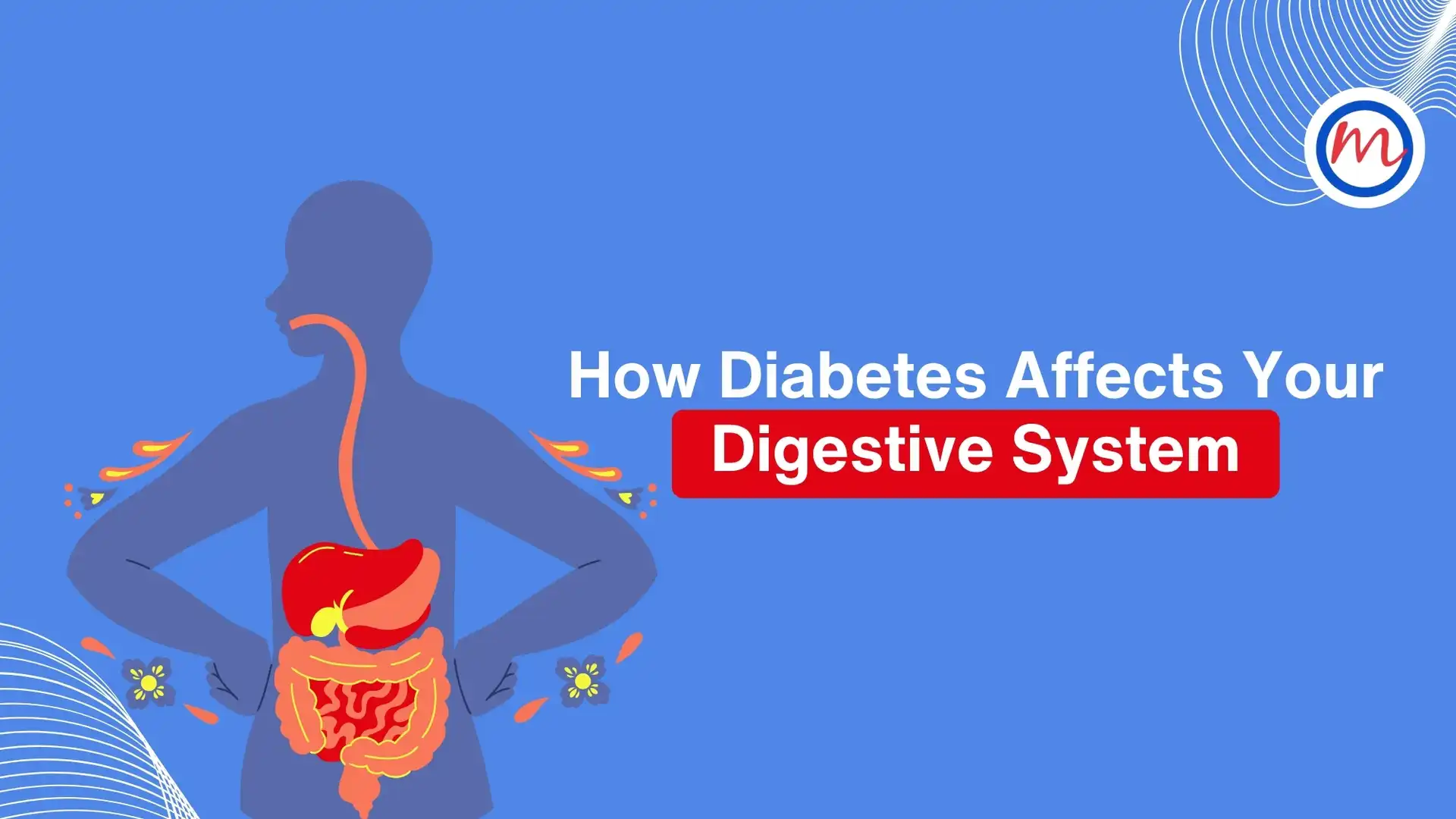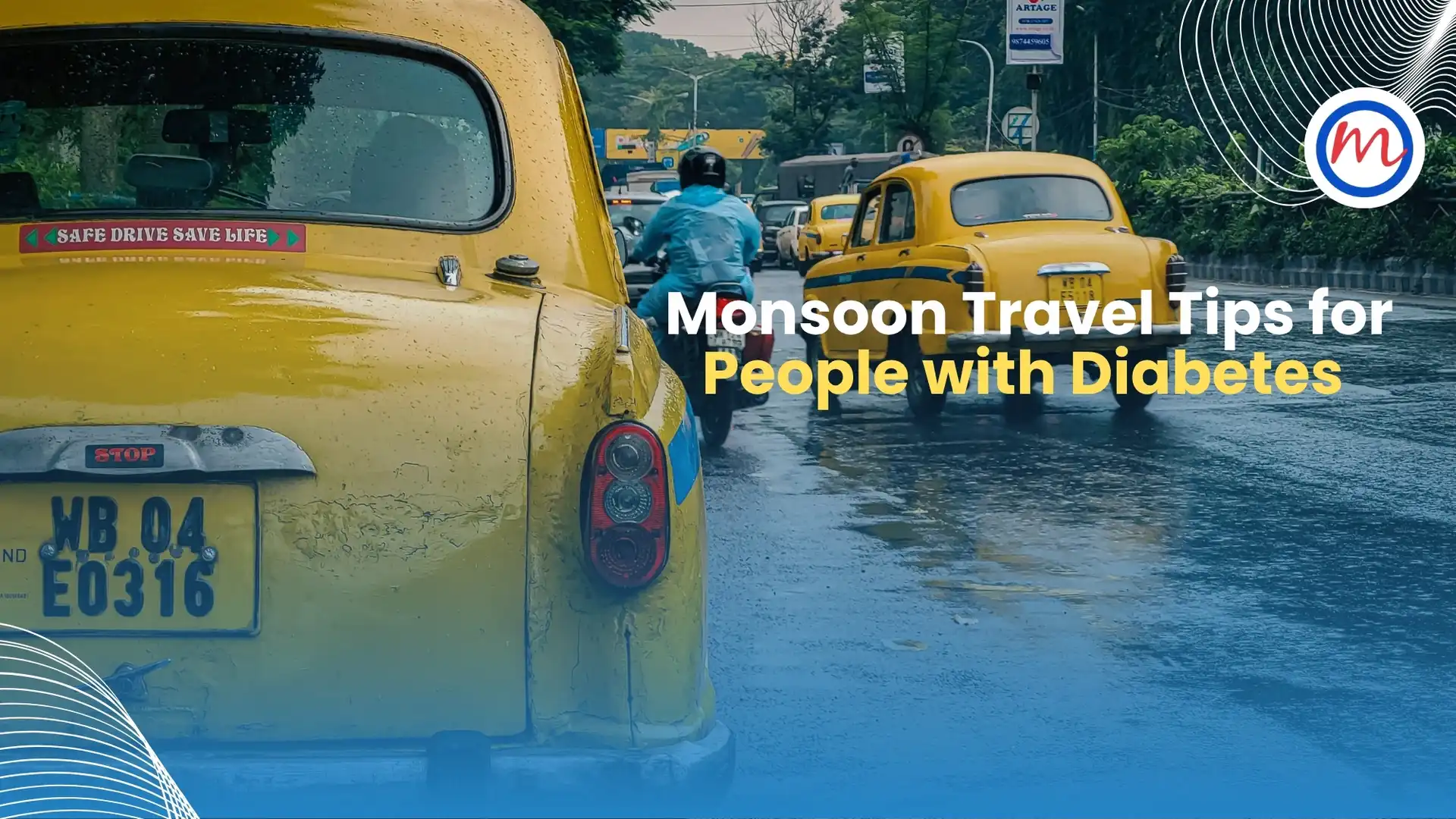7 Everyday Mistakes That Spike Your Post-Meal Blood Sugar (PPBS)
Ever felt sleepy or sluggish after eating? That might be more than just a heavy meal — it could be a sign of elevated post-prandial blood sugar levels (PPBS). This test, taken 1.5 hours after a meal, shows how your body responds to food. For individuals with or at risk of diabetes, controlling PPBS is crucial to avoid long-term complications.
But sometimes, even when your fasting sugar and HbA1c are under control, your post-meal sugars stay high. Why?
Here are 7 common everyday mistakes that silently cause those sugar spikes — and how to fix them.
-
Overeating “Healthy” Carbs
Whole grains, brown rice and oats are good for you — but portion size still matters. Too much of even a healthy carb can cause blood sugar to shoot up after a meal.
What to do: Eat controlled portions and balance carbs with protein and fibre to slow sugar absorption.
-
Skipping Protein or Fibre
A meal that’s mostly rice, chapati, or idli with very little vegetables or pulses is carb-heavy and quickly absorbed — leading to sharp sugar spikes.
What to do: Always include lean protein (like paneer, dal, egg) and non-starchy vegetables in every meal.
-
Eating Too Quickly
Did you know that fast eaters tend to have higher PPBS? Eating quickly doesn’t give your body enough time to release insulin effectively.
What to do: Chew slowly, put down your spoon between bites, and take at least 20 minutes for a full meal.
-
Drinking Water Right After Eating Sweets
You may think washing down sweets with water reduces sugar absorption — but it can actually accelerate digestion and raise your sugar faster.
What to do: Skip sweets during meals or eat them in very small amounts after some protein or fibre.
-
Skipping Your Evening Walk
Physical activity right after meals helps push glucose into your cells. Skipping it means your sugar stays in your bloodstream longer.
What to do: Take a 15–30 minute walk 30 minutes after your meal — it’s one of the best ways to control PPBS naturally.
-
Forgetting to Take Prescribed Medication
Even one missed dose of insulin or oral medication can cause a sharp rise in post-meal glucose.
What to do: Set medication reminders. Talk to your doctor if your sugar is high despite taking them.
-
Assuming Traditional Foods Are Always Safe
Items like poha, upma, dosas or parathas can still be high in refined carbs and cause sugar spikes — especially without proper balance.
What to do: Switch to millet-based or high-fibre options and combine with vegetables and protein.
Ideal PPBS Levels
| Category | Ideal PPBS levels |
| Individuals without diabetes | <140 mg/dl |
| Individuals on treatment for diabetes | <160-180 mg/dl (<140 mg/dl if possible) |
Why PPBS Matters
Consistently high post-meal sugar can lead to:
- Fatigue and brain fog
- Weight gain
- Damage to blood vessels, eyes, and kidneys
- Increased risk of heart disease
Stay One Step Ahead
At Dr. Mohan’s Diabetes Specialities Centre, we offer accurate PPBS testing and expert guidance on how to keep it in range — without giving up your favourite foods.
Visit us for more: https://drmohans.com/lab/
Book your health package now: https://drmohansdiabetes.co.in/dmdsc_packages/?package=DMD1504



